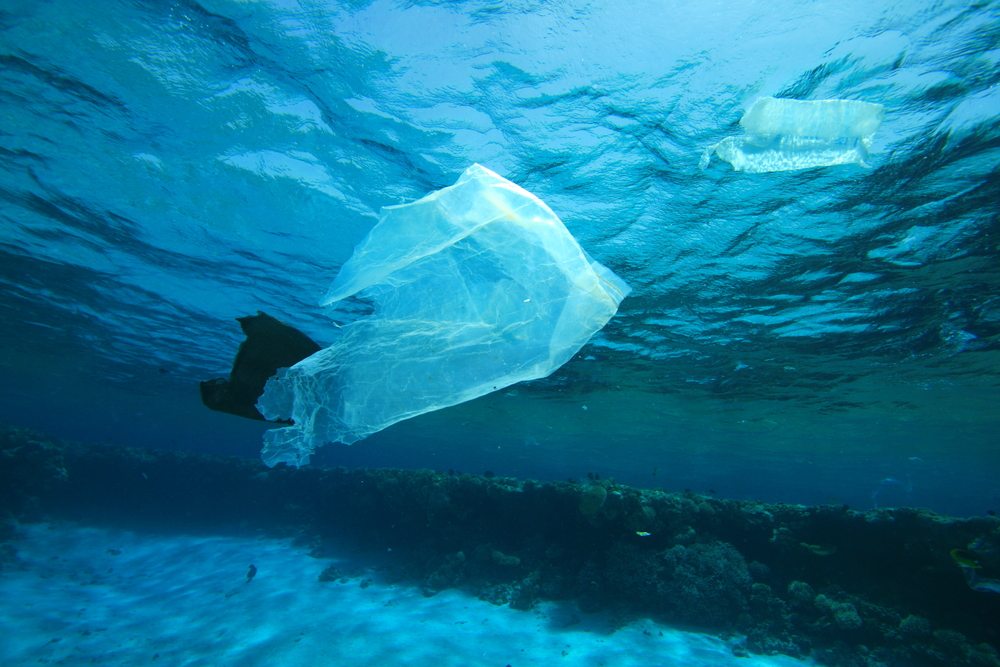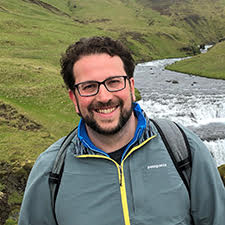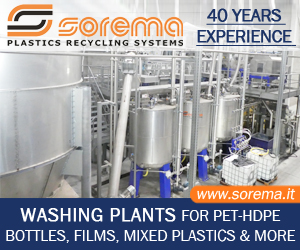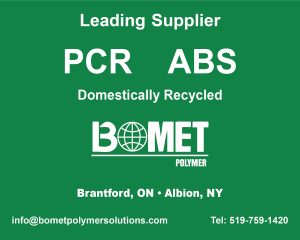
The director of Bantam Materials argues we need stricter standards across the supply chain to reduce ocean-bound plastics. | Rich Carey/Shutterstock
Our oceans are no longer ‘at risk’ from plastic pollution – they are being irrevocably harmed. Marine wildlife is suffering and vital ecosystems are becoming unbalanced. Meanwhile, microplastics are finding their way into our food and as recent research shows, our bodies. At current rates, the annual flow of plastic entering the oceans will triple by 2040, to a staggering 29 million metric tons.
These are just some of the challenges that were discussed at a recent event at Bantam Materials’ Prevented Ocean Plastic research center. The environmental implications of ocean-bound plastic waste are clear and quickly gaining traction in the public psyche – with the Blue Planet effect playing a major role in that. But there are key social challenges that also need to be addressed.

Raffi Schieir
The locations most affected by ocean-bound plastic waste tend to lack basic amenities such as clean water, healthcare and education. There is little to no employment, and while plastic bottle collection provides income for many families, it is often ungoverned, unstructured and unsafe.
Indeed, some 60% of recycled plastic is collected by the informal waste sector, which is largely undocumented and lacks standards. There is also minimal – if any – advocacy for the valuable work of bottle collectors and the potential it has to drive positive change.
These challenges, in turn, exacerbate those faced by the recycling industry, and by extension, manufacturers and retailers. Packaging supply chains are complex and identifying raw material sources is difficult. It’s no surprise, then, that many retailers often don’t know the origins of their new or recycled plastic, or can only be sure of traceability for part of the plastic’s journey. This makes it harder to reach sustainability goals, meet the requirements of legislation (such as the Plastic Packaging Tax) and appease increasingly demanding stakeholders, such as ESG-conscious investors and eco-minded consumers.
However, by connecting the dots between these multiple challenges we can find sustainable solutions that address the problems facing the environment, local communities and industry alike. To do this, we need rigorous standards that go above basic regulation, which is why Prevented Ocean Plastic is launching a new set of standards that will reach all the way down our supply chain to include indirect suppliers at collection centers. This will especially be important as these are historically hidden locations, where traditionally data has not been gathered.
The standards – set to be launched at COP27 – have been developed in accordance with the Ethical Trading Initiative (ETI) base code and follows the Code of Good Practice developed by ISEAL, as well as Bantam Materials’ Good Manufacturing Practice and best-in-class traceability processes. They have also been developed in consultation with 70 leading businesses in the industry to meet the needs of the world’s best recyclers.
Prevented Ocean Plastic has already prevented nearly 1 billion plastic bottles from entering oceans, saving the equivalent of over 61,500 metric tons of carbon dioxide equivalent emissions. Not only does the program provide an obvious environmental win, but it’s helping to mitigate the challenges faced by communities and industry as well.
Our recycled plastic is used by well-known brands and retailers in the U.K., which enables them to pacify stakeholders, meet sustainability targets and adhere to legislation. Meanwhile, the program creates income and safe employment opportunities for those in the formal and informal waste sectors overseas. We have seen the poverty that is experienced in countries at risk of plastic pollution and know that a safe, reliable income can be life-changing.
With demand for Prevented Ocean Plastic continuing to rise, the standards were created to formalize the way we work with our suppliers to ensure consistency and further increase traceability. This will raise both the quality of the product and the working conditions throughout our supply chain.
Only 9% of plastics have ever been recycled into new products. There is a huge opportunity here to turn that woeful statistic around for the benefit of everyone. Ensuring high-quality and consistent standards throughout the value chain will be critical to achieving this, and I encourage any interested parties to get in touch to further discuss this much-needed vision for a positive and circular recycled materials industry.
Raffi Schieir is co-founder and director of Bantam Materials, the supplier of Prevented Ocean Plastic. A social entrepreneur and expert in the recycled plastic industry, Schieir served as chair of Europe’s main plastic recycling conference, ICIS-2017, and from his work with ocean-bound plastics offers a unique perspective on comparative models of recycling in key supply areas.
The views and opinions expressed are those of the author and do not imply endorsement by Resource Recycling, Inc. If you have a subject you wish to cover in an op-ed, please send a short proposal to [email protected] for consideration.



